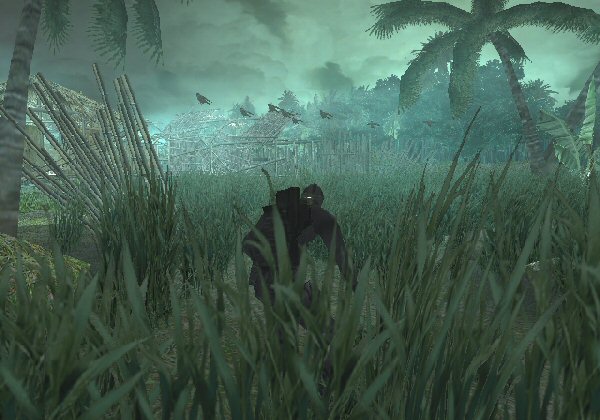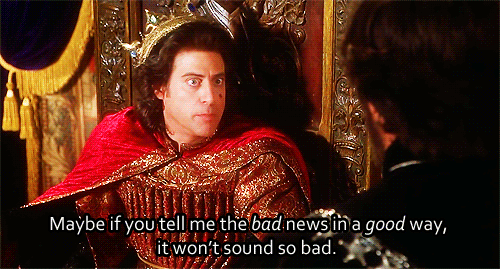MiyazakiHatesKojima
Banned


In terms of gameplay, Splinter Cell: Pandora Tomorrow is as meticulous and polished in its approach to the stealth genre as its predecessor. I already expected Pandora Tomorrow to continue where the last game left off in terms of gameplay, but I didn't expect it to stay fairly the same. With that being said, the new gadgets and incremental changes to the weaponry were welcomed, and I felt right at home with the game from the get-go. You have the usual stealth mechanics, but this time around, the use of shadows played a crucial part in how you would approach a level. The fantastic art direction and level design really brought out the best of the gameplay, but you also needed to be creative in how you'd approach enemies. This game does not hold your hand, but it respects your intelligence.
I will say this: one of the grips of the game was how difficult it was to apprehend an enemy behind their backs. I would fail to successfully take down an enemy from their back because i had to rely on the game to prompt the action tab before doing so (Splinter Cell fans would know what I mean here). Nevertheless, Pandora Tomorrow genuinely tested my stealth skills more than any game that i've played so far, which is a feat in itself. I've always enjoyed taking my time with each level and enemy i'd encounter; the subtle nuances of the gameplay start to shine as you progress into the single-player campaign. One particular level that really exhibited Pandora Tomorrow's sublime stealth mechanics was in the last level of the game where you had to combine everything that you learned so far in the game and utilize it. In other words, every gameplay mechanic you learned in the game was tested and it was both challenging but satisfying to experience. Overall, I was happy with Ubisoft's decision to keep things the way they were, but I would've hoped for a bit more variety with the weaponry and stealth mechanics.

Splinter Cell: Pandora Tomorrow exceeded my expectations when it came to the story. Unlike other politically charged stealth thrillers, in Pandora Tomorrow, Sam Fisher faces a rather smaller-scale threat which involves themes of political strife, clash of ideologies, and revolutionary uprisings taking place in East Timor. The main antagonist, Suhadi Sadono, is the culprit behind these political uprisings and what's interesting to me is that Ubisoft Montreal was likely inspired by this character when creating Far Cry 3's antagonist, Vaas Montenegro. Charismatic, brutal, and ultimately deluded in his own grandeur, Suhadi Sadono was a fantastic character to follow in both game and story. He wasn't the typically generic villains you'd see in entertainment, especially when they're foreign in nature, but rather fleshed out and had an interesting philosophy when it came to his plans. The flavor text in the form of Grimsdottir's Reports helped me appreciate his backstory more than just relying on cutscenes, ironically
What impressed me the most is how far the story would go in terms of being controversial. The fact that Pandora Tomorrow was able to tackle the issue of CIA-funded operations and Splinter Terrorist groups to undermine a country's sovereignty is pretty bold to do in a post 9/11 world (This game was released in 2004). The uncompromising nature of the story reached its peak when Sam Fisher was assigned to examine Syrian Terrorist cells in Jerusalem, Israel. Now, for me, this was the first time i've ever seen a game talk about Israel and Mossad and depicted the city of Jerusalem beautifully. It was the highlight of the game and story, for me, because it's just rare to see this in any politically-charged video game. I won't spoil what happens in this chapter of the story, but anyone who's a fan of the Steven Spielberg film Munich will really appreciate this chapter. A nuanced examination of a country's intelligence agencies and the difficult choices they make for the sake of their country is what I loved about this story the most. Overall, I felt that the storytelling was on point and tight enough to keep me engaged and invested in it during the entire single-player campaign.

Splinter Cell: Pandora Tomorrow really stands out the most when it comes to all aspects of its presentation. Graphically speaking, playing this game on the PlayStation 2 was a real treat for me because I never thought this port would stand a chance with the other PlayStation 2 games that came out in 2004 as well. I was also shocked at how good it looked compared to the first installment. The levels in this game were instantly memorable, ranging from the beautiful and serene oceans of East Timor, the modern yet futuristic cryogenic labs of Paris, France, to the spiritual awe of Jerusalem, Israel and sprawling nature of LAX Airport. My personal favourite levels has to be the Railway Train that takes you from Paris to Nice, France and the Military Submarine stationed in Jakarta, Indonesia.
The art direction in each level was sublime and the attention to detail really added to the overall immersion of the game. I genuinely felt as if I was exploring these niche but recognizable pockets of the world; being a CIA agent sounds like a blast. Speaking of sound, Pandora Tomorrow continues the tradition of having amazing sound design embedded in each level that you encounter. The raindrops in the alleys of East Timor were a treat to listen to and this game has Dolby Pro Surround sound which I felt was amazing to have in a PS2 game. Not many games from that time excelled in sound design due to the limitations of the hardware, but Ubisoft went the extra mile with it. Not only was the sound design spectacular, but the soundtrack of the game as well. The start-up theme of Splinter Cell: Pandora Tomorrow grows on you slowly with each subsequent play session (Note: Apparently, this track is exclusive to the PlayStation 2 version of the game.)
Overall, the presentation shown in Pandora Tomorrow was stellar and really set a benchmark for future Splinter Cell games as I play through the franchise for the first time in the next few years to come.

I had a fantastic time playing Splinter Cell: Pandora Tomorrow and it was a great way to return to this legendary franchise. I felt like this particular installment left a stronger impression in comparison to the first installment. A unique and compelling story alongside stellar presentation and gameplay makes me think why don't developers make games like this anymore in the stealth genre. Ubisoft Shanghai/Milan did an impressive job with Pandora Tomorrow despite the short development time given to them. Overall, It's safe to say: Pandora Tomorrow is another instant classic from the Splinter Cell franchise (
Score: 9.25/10 (Editor's Choice)









Last edited:







